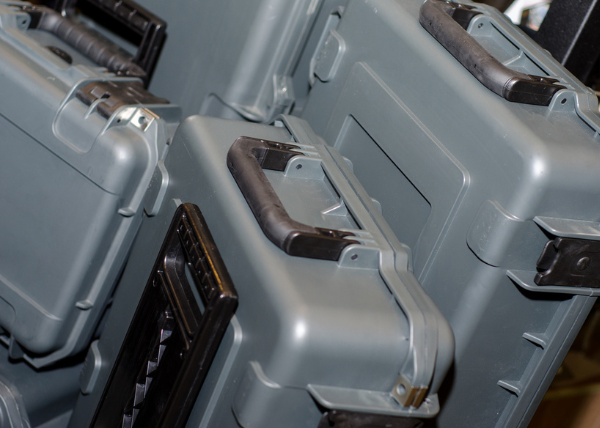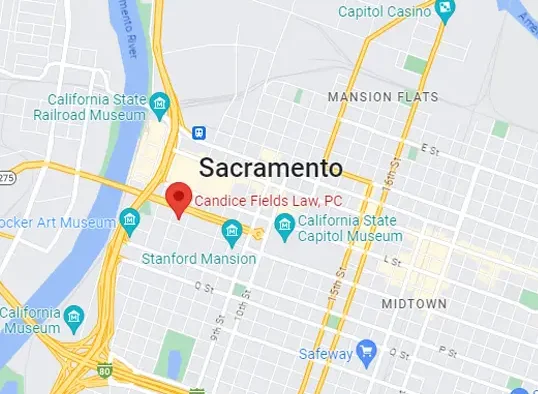Illegal Transport of Firearms Lawyer
If you're a hunter or firearms enthusiast facing charges for the illegal transport of firearms, either across state lines or internationally, you understand the complexity and risks involved. This situation can be overwhelming, potentially impacting your reputation, passion for hunting, and legal rights. You need an experienced, strategic gun defense lawyer to navigate the intricate laws governing firearms transport. Candice Fields Law, P.C. is here to provide the defense you need.
What is an Illegal Transport of Firearms Charge in California?
In California, the laws regarding the illegal transport of firearms are detailed and strict, reflecting the state's commitment to regulating the use and movement of firearms within its borders. Here's an overview of what constitutes an illegal transport of firearms charge in California:
California's Firearms Transport Regulations
Under California law, the illegal transport of firearms can encompass several different violations, each with its specific criteria and penalties. Generally, these laws are designed to ensure that firearms are transported safely and responsibly and that individuals transporting firearms are legally allowed to possess them.
- Transporting Firearms without a Proper License: California requires individuals to possess a valid California Concealed Carry Weapon (CCW) license if they wish to carry a concealed firearm in public. Transporting a concealed firearm without such a license can lead to charges.
- Improper Transportation of Firearms in Vehicles: California law requires that firearms transported in a vehicle must be unloaded and stored in a locked container other than the utility or glove compartment. This requirement does not apply to individuals with a valid CCW firearms licenses.
- Transporting Assault Weapons and Other Restricted Firearms: California has stringent laws regarding assault weapons, .50 BMG rifles, and other firearms classified under specific legal categories. Transporting such firearms without proper authorization or violating state regulations can result in significant legal charges.
- Transporting Firearms into Prohibited Areas: Certain areas in California, including school zones, government buildings, and places where firearms are explicitly prohibited by federal or state law, are off-limits for transporting firearms, even if the individual possesses a CCW license.
- Transport Across State Lines: While primarily a federal concern, California residents must also be mindful of federal laws when transporting firearms across state lines. Compliance with both California law and the laws of the destination state is required.
Penalties for Illegal Transport of Firearms in California
The penalties for illegally transporting firearms in California can vary widely depending on the specifics of the offense, including the type of firearm involved, the nature of the violation, and the individual's criminal history. Penalties can range from fines and probation to significant prison time, especially for offenses involving assault weapons or repeated violations.
Legal Defenses
Several defenses can be employed in cases involving charges of illegal transport of firearms in California, including but not limited to:
- Lack of knowledge that the firearm was present
- The firearm was locked in a container and unloaded (if applicable)
- The individual possessed a valid CCW license (for cases involving concealed carry)
- The search and seizure leading to the discovery of the firearm was illegal under the Fourth Amendment
Given the complexity of California's firearms laws, individuals facing charges for the illegal transport of firearms are strongly advised to seek legal representation. A knowledgeable criminal defense attorney can offer guidance on the best legal strategy and work to protect the rights of the accused.

What is an Illegal Transport of Firearms Charge on the Federal Level?
An illegal transport of firearms charge at the federal level involves the violation of federal laws governing the movement of weapons across state lines, international borders, or within federal jurisdictions. These laws are designed to regulate the distribution, importation, and transportation of firearms to prevent illegal trafficking and ensure public safety. The Bureau of Alcohol, Tobacco, Firearms, and Explosives (ATF) is the primary federal agency responsible for enforcing federal firearms laws.
Key Federal Laws on Firearms Transport
Several federal statutes address the transport of firearms, including but not limited to:
- The Gun Control Act of 1968 (GCA): The Gun Control Act of 1968 regulates the firearms industry and its owners. It restricts the interstate transport of firearms except among licensed manufacturers, dealers, and importers. It requires that individuals transporting firearms across state lines comply with the laws of both the state of origin and the destination state.
- The National Firearms Act (NFA): The NFA imposes restrictions on the transport, manufacture, and possession of certain classes of firearms, including machine guns, short-barreled rifles, short-barreled shotguns, and suppressors. Transporting these items across state lines requires prior notification and approval from the ATF.
- The Firearms Owners' Protection Act (FOPA) of 1986: FOPA provides protections for individuals transporting firearms for lawful purposes from one place where they are legally allowed to possess and carry them to another, provided the firearms are unloaded and stored in a locked container or area not readily accessible from the vehicle's passenger compartment.
Violations and Penalties
Violations of federal firearms transport laws can result in severe penalties, including fines, confiscation of firearms, and imprisonment. The severity of the penalties often depends on the nature of the violation, such as whether it involves transporting illegal guns, the intent to commit a crime, or prior criminal history.
For example, knowingly transporting a firearm across state lines with the intent to commit a felony can lead to significant federal charges. Similarly, transporting NFA-regulated firearms without the proper paperwork can result in severe penalties.
Legal Defenses
Legal defenses to federal charges of illegal transport of firearms can vary widely depending on the specifics of the case. Common defenses may include:
- The individual was unaware they were in possession of the firearm.
- The transportation complied with FOPA's requirements for lawful transport.
- The individual possessed all necessary licenses and complied with NFA regulations.
Given the complexity of federal firearms laws and the severe consequences of a violation, individuals facing federal charges for illegal transport of firearms are strongly encouraged to seek experienced legal representation. A qualified gun attorney can navigate the complexities of federal law, work to protect the defendant's rights, and develop a defense strategy based on the case's specifics.
How an Illegal Transport of Firearms Lawyer Can Help
As Candice Fields Law, P.C., our experience and dedication make us a powerful ally for individuals facing charges of illegally transporting firearms. Understanding the complexities of both state and federal laws is crucial in these cases, and our firm is well-equipped to navigate these challenges. Here’s how we can assist if you’re facing such charges:
Navigating Complex Legal Landscapes
Our in-depth knowledge of California's strict firearm laws and federal regulations positions us to provide comprehensive legal representation. We understand the nuances that distinguish the state from federal charges and are adept at navigating the complexities of cases that involve crossing state lines or international borders.
Developing a Strong Defense Strategy
Every case is unique, and crafting a defense that accounts for the specifics of your situation is where Candice Fields Law excels. We begin with a thorough review of the circumstances surrounding your charges, including how and why you were transporting firearms, the legality of the firearms in question, and compliance with transportation requirements. We aim to identify and leverage any factors that could lead to a dismissal or reduction of charges.
Protecting Your Rights
Protecting your rights becomes our top priority from the moment you engage our services. This includes ensuring lawful treatment by law enforcement and the legal system, safeguarding your right to own firearms when legally permitted, and defending your freedom. We are committed to ensuring that your case is handled fairly and that any search, seizure, or arrest conducted in connection with your charges complies with constitutional protections.
Negotiating with Prosecutors
Our experience in the courtroom and negotiations with prosecutors can be a critical asset. We understand the priorities and pressures facing prosecutors in firearm cases and can leverage this understanding to negotiate favorable outcomes. Whether seeking a reduction in charges, arguing for alternative sentencing, or pursuing a dismissal based on evidentiary issues, we are your best advocate.
Providing Support and Guidance
Facing charges related to the illegal transport of firearms can be overwhelming. Beyond the legal defense, Candice Fields Law offers support and guidance throughout the process. We keep you informed, demystify legal jargon, and ensure you understand your options and the potential outcomes. We aim to alleviate the stress and uncertainty of legal proceedings.
Ensuring Compliance and Education
In addition to defending you in court, we provide advice and resources to ensure compliance with firearms laws moving forward. This includes education on both state and federal regulations regarding the transport of firearms, helping to prevent future legal issues.
Common Scenarios Where You Might Be Charged with Illegal Transport of Firearms
People can be charged with illegal transport of firearms in various scenarios, often stemming from misunderstandings of the law or oversight. Below are examples that illustrate common situations leading to such charges:
1. Crossing State Lines Without Understanding Local Laws
A hunter from State A, where open carry is legal without a permit, decides to take a hunting trip to State B, which has stricter firearm transport laws. The hunter does not research State B's laws and transports the firearm in the vehicle's glove compartment, a method legal in State A but illegal in State B. This oversight could result in charges for illegally transporting firearms upon entering or being stopped in State B.
2. Traveling Through States with a Firearm in the Vehicle
Individuals planning to move from one part of the country to another decide to transport their legally owned firearm in their vehicle. Despite the firearm being unloaded and locked in a case, the individual fails to check the firearm transport laws of the states they are traveling through. Some states have specific requirements that are not met, leading to their arrest for illegal transport when stopped for a routine traffic violation.
3. Carrying Firearms Across International Borders
A U.S. citizen decides to bring a firearm on an international hunting trip without properly declaring it or understanding the destination country's laws on firearm importation. Upon arrival, the firearm is discovered during customs inspection, leading to charges in the foreign country and potential charges upon returning to the U.S., especially if attempting to re-enter without proper declaration.
4. Transporting Firearms by Air Without Following Regulations
An individual attempts to fly with a firearm but does not follow the Transportation Security Administration (TSA) guidelines, which require firearms to be unloaded, packed in a hard-sided locked case, and declared at the airline check-in counter. If the firearm is improperly packed in carry-on luggage or not declared, the individual could face federal charges and TSA penalties.
5. Shipping Firearms Illegally
A person sells a firearm to an out-of-state buyer and decides to ship the firearm directly to the buyer's home address via a common carrier without going through a licensed firearm dealer. This action violates federal laws that require interstate transfers to be processed through licensed dealers in the recipient's state, potentially leading to federal charges for illegal transport.
6. Possessing a Firearm in a Vehicle Without a Permit
In some states, having a loaded firearm in a vehicle without a concealed carry permit is illegal. An individual unaware of this law or mistakenly believing their permit from another state is valid everywhere can face charges if stopped by law enforcement and found to have a loaded gun in the vehicle.
7. Carrying Firearms into Prohibited Areas
Transporting firearms into areas where they are explicitly banned, such as schools, government buildings, or private properties with posted signs prohibiting firearms, can result in charges. This can occur even if the individual legally possesses the firearm but overlooks or ignores signage and laws regarding specific no-carry zones.
These examples underscore the importance of understanding and complying with the specific laws and regulations governing the transport of firearms in different jurisdictions. Given the complexity and variability of these laws, individuals who own or intend to transport firearms should seek detailed information about the requirements and restrictions applicable to their circumstances.
Why Choose Candice Fields Law?
- Experience: Profound knowledge of firearm laws and a proven track record in defending against charges of illegal transport.
- Personalized Approach: Tailored defense strategies that reflect the specifics of your case.
- Commitment: A firm commitment to protecting your rights, freedom, and lawful interests.
- Results: A focus on achieving the best possible outcome through negotiation or litigation.
Need Legal Assistance with Firearm Transport Charges? We're Here to Help.
Facing charges for illegal transport of firearms can be daunting, but you don't have to navigate the legal system alone. Candice Fields Law, P.C., shas experience in firearms law and is committed to defending your rights and freedoms. Contact us today for legal representation and take the first step towards securing your future.





